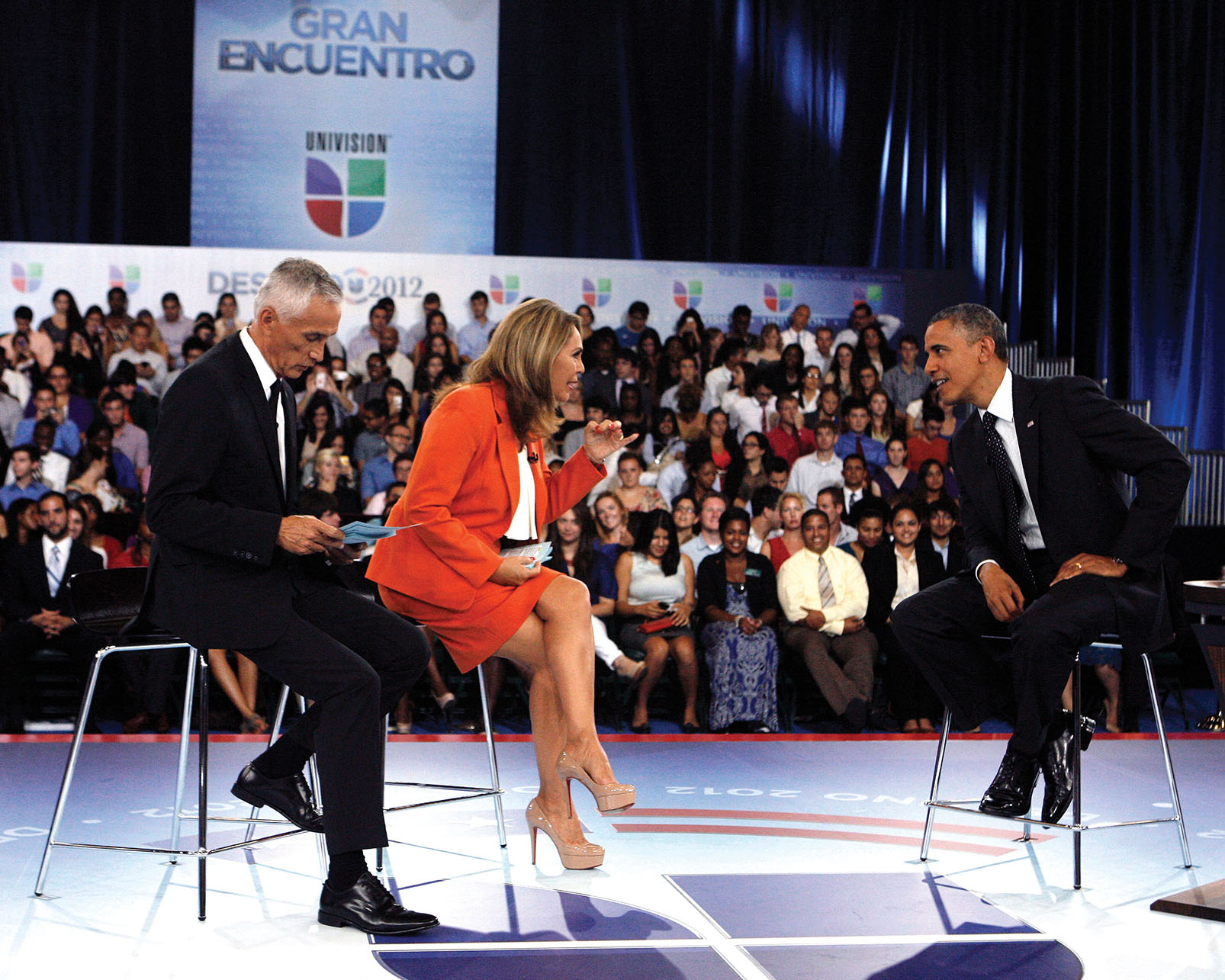While many sectors of the U.S. media are in limbo or dying, the Univision news division is expanding and developing at an extraordinary rate. In 2010, the company brought in Colombian entrepreneur and investigative journalist Isaac Lee to serve as president of news. Lee believes their decision signaled a change in the vision of the company. “No one hires me to keep things calm or for business as usual,” he said at a recent event hosted by the Graduate School of Journalism at UC Berkeley. “They hired me because they needed a revolution.”
Lee has a history of hard-hitting investigative reporting. By age 27, he was editor-in-chief of Revista Semana, one of Colombia’s most respected magazines, where he helped break a story uncovering a government scandal that caused two top officials to resign. Lee then went on to create popular magazines and websites in both Colombia and Mexico, including the lifestyle magazine Soho, the business news magazine PODER, and the news site AnimalPolitico.com. Now at the helm of Univision News, Lee has begun expanding by building a new investigative journalism unit. In addition, he oversaw the network’s first town hall meetings with U.S. presidential candidates during the heat of the campaign between Mitt Romney and Barack Obama.
At his presentation, Lee highlighted the growing voting power of Latinos in the U.S., noting that the recent presidential election was a particularly strong example. “No candidate will ever again think that he or she can ignore the Hispanic community,” Lee said. “It shows you that we are not the voiceless anymore, that we are not invisible.”
Latino media is one of the fastest growing news sectors in the United States, and advertisers and politicians alike are striving to reach the demographic. Univision captures about 80 percent of the Spanish-language television market, and for more than 70 percent of its viewers, the network is their principal or only source of news. Earlier this year, the company made history when it took fourth place in the February Nielson ratings, edging out NBC. Now, Univision is expanding its focus from a primarily Spanish-speaking audience to second-generation Latinos through a deal with Disney and ABC News to create Fusion, an English-language news and lifestyle network scheduled to go on air in the fall.
According to Lee, no other major news outlet has succeeded in attracting this growing, English-speaking Latino demographic. Second- and third-generation Latinos “have a huge cultural connection to family, to their roots, to the food, and to the music,” he said. “And we found there was a void there.” With Fusion, Univision is no longer just about television. They plan to expand into interactive multimedia, data visualization, and, perhaps most importantly, mobile content. For many young Latinos, the digital screen is quickly becoming the first place they turn to for news. “We are not going to change a cultural trend,” he said. “We are adapting the content to it.”
Univision was founded by the Mexican TV conglomerate Televisa, but the two companies have since become more independent. During the recent Mexican elections, Televisa was scrutinized by inter-national outlets for what was said to be favorable press towards now-president Enrique Peña Nieto. The Mexican news network currently owns a 24.9-percent share in Univision — the maximum a foreign company can invest in a U.S. media outlet. The two companies recently extended a deal to broadcast Televisa-produced telenovelas on Univision’s channels. When asked if coverage of Mexican politics is affected by Televisa’s stake in the company, Lee said it isn’t. “I have never received a call from anyone from Televisa asking for anything,” he said, adding that he never expects them to contact him regarding news content. The same goes for ABC News.
When asked how Univision balances serving the Latino community with remaining an objective news service, Lee said his company seeks the improvement of the Latino community, and they report news with an angle that serves their audience. For example, he said they reported the recent Sandy Hook Elementary School mass shooting just as any other network would, only they gave particular attention to Victoria Soto, a Latina teacher who died saving the lives of her 16 students. Similarly, with the shooting that nearly killed Congresswoman Gabby Giffords, they also focused heavily on her Latino aide who was shot dead at the scene. Lee said this approach is often construed as bias but countered that the company seeks to report news that is of interest to the Latino community.
Lee was also asked if Univision plans to expand beyond the Latino audience to other immigrant communities in the United States. While acknowledging that Univision’s content may be of interest to others, he stressed that his team is focused on creating content for the population they know best: Latinos.
Isaac Lee is the president of news at Univision Communications Inc. He spoke for the Graduate School of Journalism on February 13, 2013.
Steve Fisher is a student at UC Berkeley’s Graduate School of Journalism.

